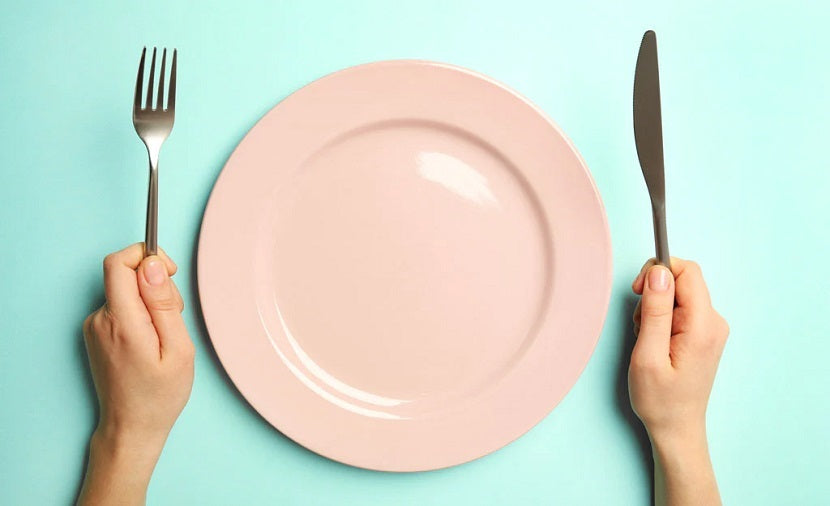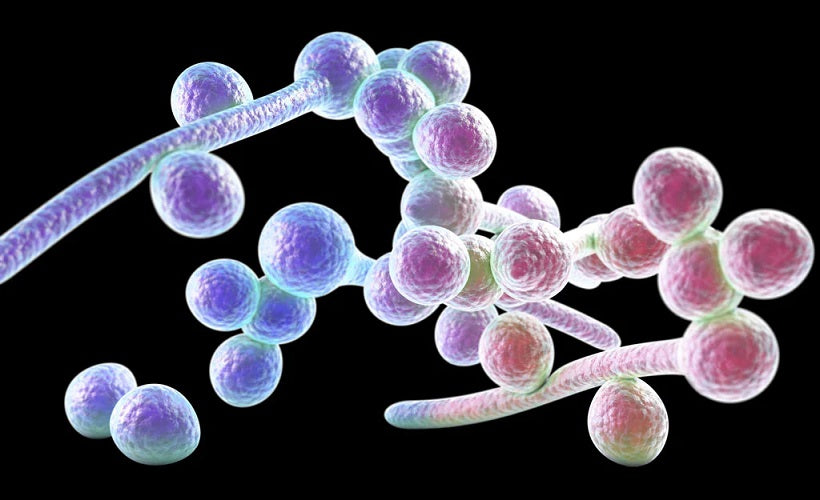If you’ve thought about intermittent fasting to improve your health but aren’t too sure what it’s all about, here’s my guide to get you started.
What is intermittent fasting?
Intermittent fasting is a pattern of eating with a predetermined period of time to consume caloric needs and a set period of time when one refrains from eating. This period of fasting is believed to reduce insulin levels and achieve a range of other health benefits.
With intermittent fasting, the focus is more on WHEN you eat; however, WHAT you eat remains equally important so I advise sticking to whole foods that are balanced in nature. In this regard, intermittent fasting isn’t a diet in the conventional sense but rather a specific PATTERN of eating.
Benefits of intermittent fasting
- Great results have been found in terms of fat burning capacity when compared to other common diets.
- Caloric intake is naturally reduced, merely in light of the smaller time frame available for food (assuming you don't overcompensate later).
-
Fasting for extended periods increases human growth hormone production and retention. This means you can achieve fat loss while maintaining muscle mass and tone.
- Fasting significantly increases insulin sensitivity and lowers baseline insulin levels in the body. This is excellent for people with insulin resistance and metabolic conditions.
- The decreased insulin allows better utilisation of fatty acids. Consequently, the body uses fat as a source of energy to promote effective fat loss.
- Fasting has also been found to decrease leptin, making fat stores more accessible for burning.
- Fasting reduces inflammation, making it excellent for individuals who suffer from arthritis or other inflammatory conditions.
-
Fasting activates autophagy, a process wherein new cells 'eat' damaged cells and regenerate new ones. It’s an important repair process and positively changes the expression of genes relating to longevity and disease prevention.
- A short-term fast can boost metabolism.
Types of intermittent fasting
- 16:8 - No food intake for 16 hours and consuming food only within an 8-hour period (usually from 12 noon to 8 pm).
- 5:2 - Involves five days of normal eating and two non-consecutive days of restricting calorie consumption to 25% of your caloric needs (usually 500-600 calories).
- Eat-Stop-Eat - Fasting for 24 hours once or twice a week.
How to begin
Think about what is most realistic and sustainable for your lifestyle, then choose when you prefer to begin or finish eating in the day/week.
For starters, consume a high-fibre meal prior to fasting – this will keep you feeling satiated longer without overloading you with unnecessary calories. Also, have a portion of high-quality fat in your last meal as this will keep you full and assist with fat burning.
What you can eat
Whatever you choose, really! Intermittent fasting is a pattern of eating and not a specific diet. That being said, we still promote a whole-food and mostly plant-based approach for all our followers. Below is a list of other observations we’ve made which can help you with intermittent fasting.
-
Black coffee is fine. Polyphenols in coffee encourage cells to recycle and go through autophagy. Caffeine also supports the fast by boosting your metabolism.
-
If you need a sweetener, go for stevia. Try the leaf or drops version to sweeten your drinks.
-
All herbal teas are OK without milk.
-
Diet sodas are a grey area. I don’t advise this merely for health reasons – the fake sugars also trigger a metabolic response.
-
Water is fine (unless you’re doing a dry fast).
-
Sodawater is OK.
-
Apple cider vinegar and lemon juice are a grey area for some but I believe the benefits outweigh any metabolic response.
- Most tableted (not gel cap) supplements including Happy Hormones capsules are OK (best to keep HH Powder for meal time).
If you need guidance on what foods are best for you, have a look at our FREE Happy Hormones 8-Week Program.
What you can’t have during a fast
Here’s a list of what should be completely avoided until meal time, mostly due to the fact that they initiate an insulin spike or a metabolic response that can bring you out of your fasting state.
- No fruit-flavoured herbal teas
- No coconut water
- No bone broth
- No MCT oil
- No coconut oil
- No whey protein concentrate or vegan protein powders
- No fish, hemp, flax, CBD, CoQ10 or cod liver oil supplements
- No exogenous ketone supplements
- No erythritol
- No powdered milk
- No Happy Weight powder (Sorry ladies, this has to wait until mealtime!)
When it’s best to exercise
If you want to improve your body composition then opt for a training session in the middle or the end of your fast. This will be most beneficial because the majority of your glycogen stores will have been utilised or ‘eaten into’ and exercise will initiate the use of stored fat for energy. If you wish to focus more on strength then opt for a time you’ve recently eaten to ensure maximum endurance.
Common intermittent fasting mistakes
-
You reach for junk food when breaking your fast.
This not only leaves you with less room for vegetables and high-quality proteins but also derails you from your main goal which is HEALTH.
-
You fail to reach your basic nutritional needs during the eating phase.
Many people notice a decrease in appetite when fasting as their stomach shrinks in size. Although this is useful in terms of calorie consumption, it also results in failing to eat enough fats, carbs, and proteins. Remember that nutrient deficiency is also a block for effective weight management.
-
You accidentally break your fast.
Perhaps you consume something that wouldn't take you out of ketosis but would, in fact, break a fast (e.g. MCT oil in bulletproof coffee). Or perhaps you completely overlook that pour of steamed milk in your flat white.
-
Insufficient water consumption.
If we don't get enough quality water, we cannot fully flush out toxins. Supporting our kidneys and detoxification pathways is so important when fasting because we both recycle old cells and also release toxins whilst fat burning. Remember also that toxic load is a block to effective fat burn.
-
Inadequate mineral intake.
Think electrolytes. If we don't eat whole foods and drink adequate water we simply won't obtain the minerals we need to facilitate fat burn and cellular rejuvenation.
Is fasting right for me?
This pattern of eating can be very beneficial to one's health and you may find it suits your body and lifestyle. However, it’s important to pay attention to your cycle when trying intermittent fasting for the first time. Take note of how you feel and never overlook the fundamental necessity for sufficient sleep, stress management practices, proper nutrition and exercise.
If unsure whether or not intermittent fasting is right for you, join our private Happy Weight Facebook group and ask those who’ve tried it. Our team of health experts and naturopaths can also offer their best advice!










Leave a comment
This site is protected by hCaptcha and the hCaptcha Privacy Policy and Terms of Service apply.